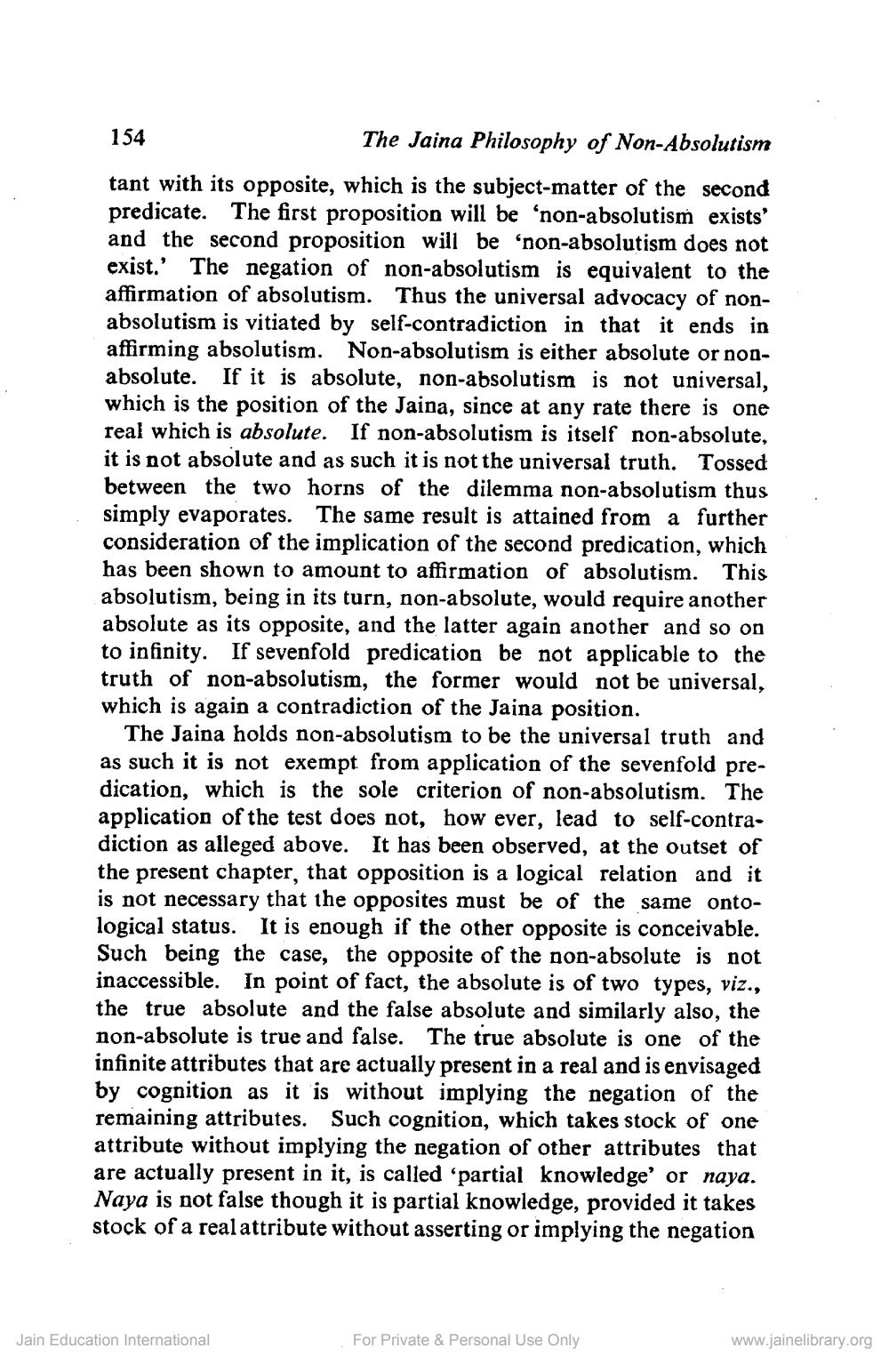________________
154
The Jaina Philosophy of Non-Absolutism tant with its opposite, which is the subject matter of the second predicate. The first proposition will be 'non-absolutism exists' and the second proposition will be “non-absolutism does not exist.' The negation of non-absolutism is equivalent to the affirmation of absolutism. Thus the universal advocacy of nonabsolutism is vitiated by self-contradiction in that it ends in affirming absolutism. Non-absolutism is either absolute or nonabsolute. If it is absolute, non-absolutism is not universal, which is the position of the Jaina, since at any rate there is one real which is absolute. If non-absolutism is itself non-absolute, it is not absolute and as such it is not the universal truth. Tossed between the two horns of the dilemma non-absolutism thus simply evaporates. The same result is attained from a further consideration of the implication of the second predication, which has been shown to amount to affirmation of absolutism. This absolutism, being in its turn, non-absolute, would require another absolute as its opposite, and the latter again another and so on to infinity. If sevenfold predication be not applicable to the truth of non-absolutism, the former would not be universal, which is again a contradiction of the Jaina position.
The Jaina holds non-absolutism to be the universal truth and as such it is not exempt from application of the sevenfold predication, which is the sole criterion of non-absolutism. The application of the test does not, how ever, lead to self-contradiction as alleged above. It has been observed, at the outset of the present chapter, that opposition is a logical relation and it is not necessary that the opposites must be of the same ontological status. It is enough if the other opposite is conceivable. Such being the case, the opposite of the non-absolute is not inaccessible. In point of fact, the absolute is of two types, viz., the true absolute and the false absolute and similarly also, the non-absolute is true and false. The true absolute is one of the infinite attributes that are actually present in a real and is envisaged by cognition as it is without implying the negation of the remaining attributes. Such cognition, which takes stock of one attribute without implying the negation of other attributes that are actually present in it, is called 'partial knowledge' or naya. Naya is not false though it is partial knowledge, provided it takes stock of a real attribute without asserting or implying the negation
Jain Education International
For Private & Personal Use Only
www.jainelibrary.org




